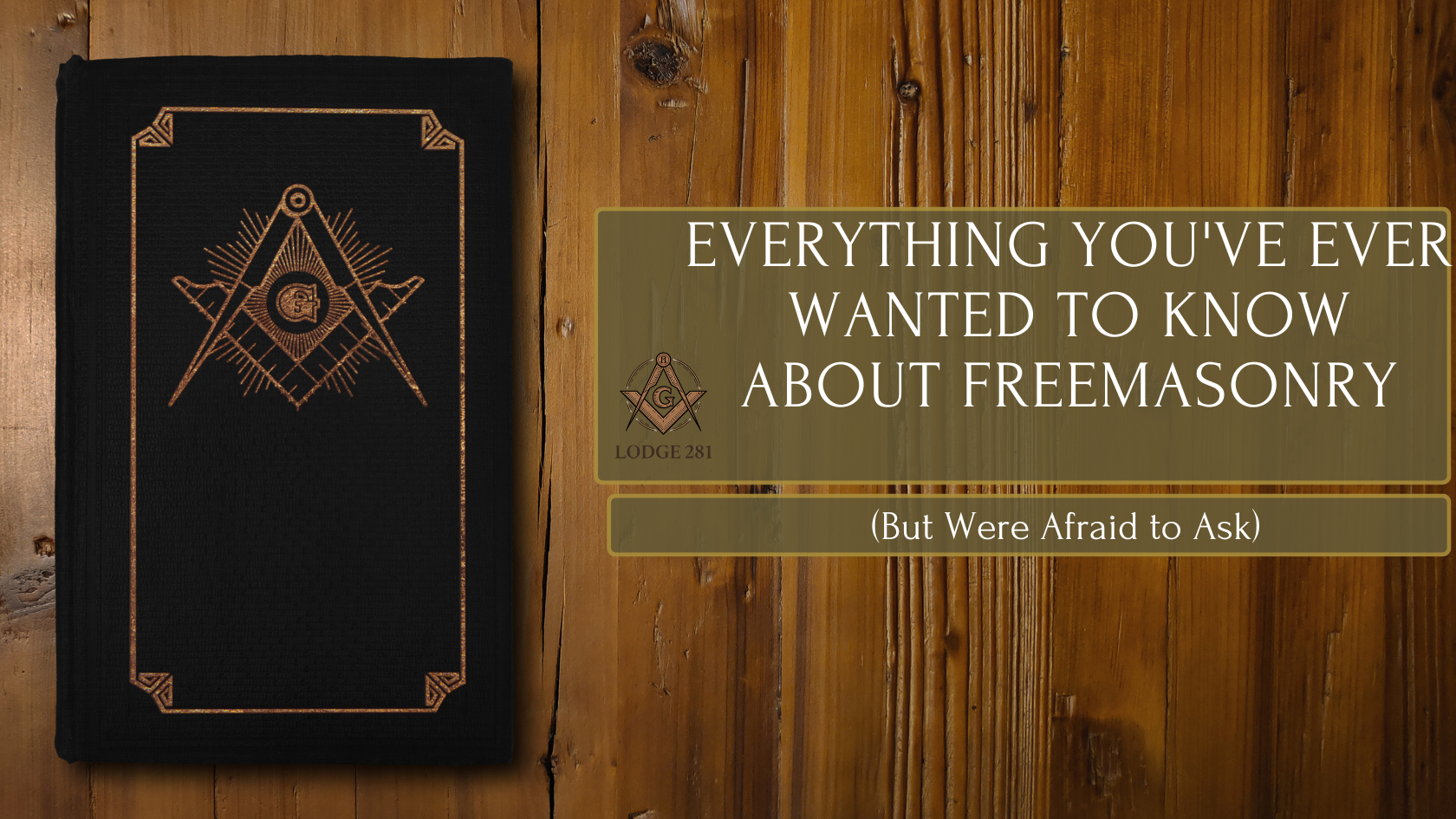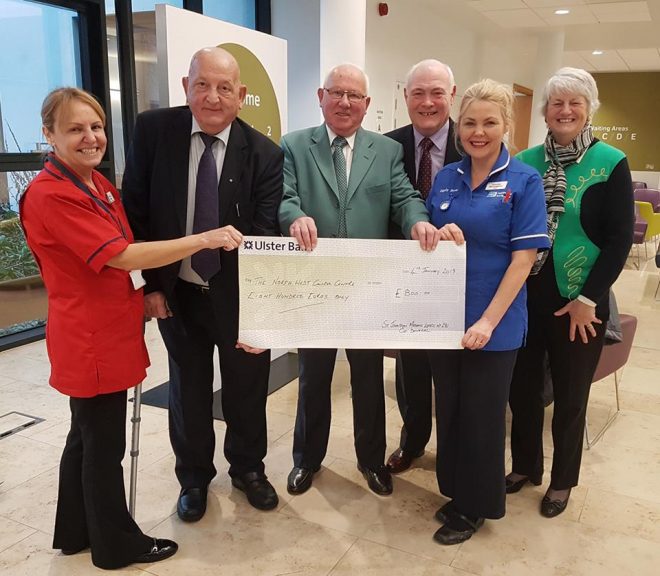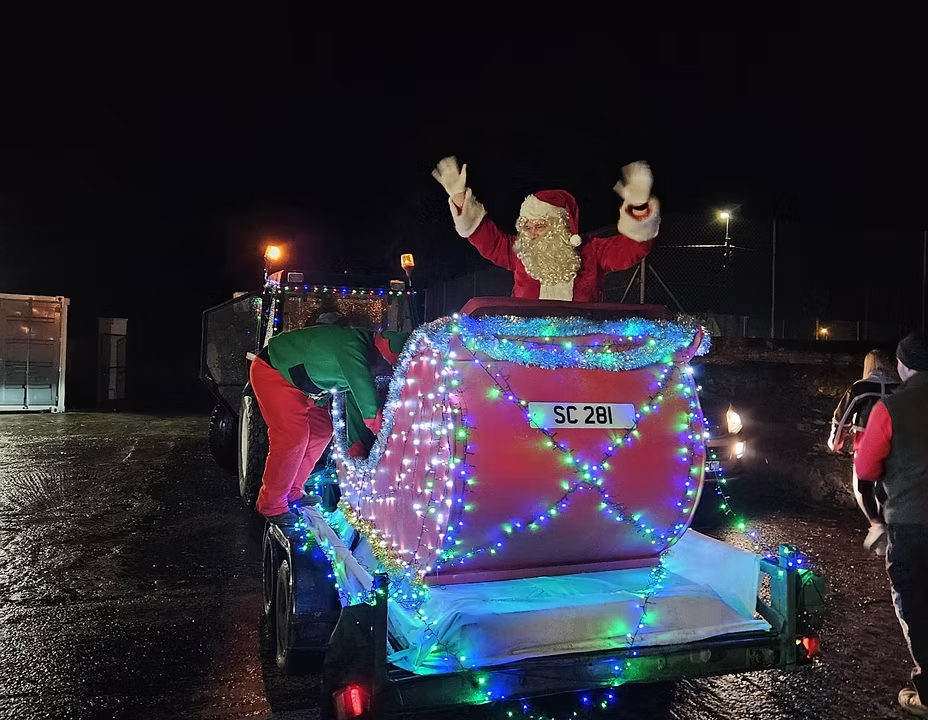A comprehensive guide to the world’s oldest fraternal organisation, with particular insight into Irish Freemasonry and Lodge 281 in St Johnston, County Donegal
What is Freemasonry?
Freemasonry is a brotherhood of men committed to lives of honour, integrity, and character—though we promise the tea is better than that description makes it sound. The men of Freemasonry are on a journey of self-discovery that’s been going strong for centuries. For hundreds of years, Freemasons, with deep brotherly support (and the occasional good-natured ribbing), have worked to become the best version of themselves whilst working to better their communities and our world.
Think of it as a gentleman’s club with a moral compass and significantly less port consumption.
Why Should I Become a Freemason?
Becoming a Freemason can help you achieve great personal reward by guiding you to build your moral character and connection to your community. Freemasonry is built upon the core tenets of brotherly love and affection, relief, and truth—principles that have served men well whether they’re in London, Dublin, or the charming village of St Johnston in County Donegal.
Through a commitment to these values, all Freemasons share the common goal of making good men better. In addition to self-improvement, a Freemason is a gentleman eager to be part of something bigger than himself, with a reverence for history, compassion in his heart, and a desire to create a better future. Plus, you’ll have fascinating stories to tell at dinner parties (well, the ones we’re allowed to share, anyway).
Who Can Be a Freemason?
Freemasonry welcomes men of every country, religion, race, age, income, education, and opinion. We’re remarkably inclusive for an organisation that started when people thought the Earth was flat. However, to join Freemasonry, one must meet the following qualifications:
- Be a gentleman at least 18 years of age (21 in some jurisdictions—we like our members to have figured out which end is up)
- Believe in the existence of a Supreme Being, although Freemasonry is not concerned with theological distinctions or particular religious beliefs
- Be of good moral character (no axe murderers, please)
- Be motivated to join for reasons unrelated to personal gain or profit
- Your decision to apply must be based on your own “free will and accord”—no arm-twisting from your brother-in-law
- Be prompted by a favourable opinion of Freemasonry
- Be desirous of earning knowledge and willing to conform to the ancient usages and customs of the fraternity
In County Donegal and across Ireland, we particularly welcome men who appreciate good craic, honest conversation, and the occasional well-timed bit of wisdom.
How Do I Apply to Become a Freemason?
The process of applying to become a Freemason in Ireland can be expedited in a few different ways. You can contact the Grand Lodge of Ireland (the overarching Masonic governing body), find a Masonic lodge in your area that you wish to join—such as our own Lodge 281 in St Johnston—or reach out to a gentleman who is a Freemason and ask for his help.
If you’re in the St Johnston area or anywhere in County Donegal, Lodge 281 would be delighted to hear from you. We meet regularly and are always pleased to welcome prospective members for a chat over tea and biscuits.
You will submit a petition for membership. Members at the lodge will read your petition and form a small committee to meet with you to determine your qualifications and answer any questions you have regarding Freemasonry. Don’t worry—it’s more like a friendly interview than an interrogation.
What is a Masonic Lodge?
In Freemasonry, the lodge means two things. It refers to a group of Masons coming together in fellowship, and, at the same time, refers to the room or building in which they meet. It’s rather like how “parliament” can mean both the building and the people inside it, though we argue considerably less and serve better refreshments.
There are hundreds of Masonic lodges across Ireland, including our Lodge 281 in St Johnston, County Donegal. The lodge itself typically consists of a lodge room where official business and Masonic rituals are conducted, as well as several additional areas for brethren to share meals, spend time together, host public and private events, and engage in the ancient Masonic tradition of putting the world to rights over a cup of tea.
How Can I Find a Masonic Lodge Near Me?
There are Masonic lodges in virtually every county across Ireland and throughout the UK. If you’re in County Donegal or the surrounding areas, Lodge 281 in St Johnston would be an excellent choice. We’re conveniently located and have been serving the local community for many years.
For other areas, contact the Grand Lodge of Ireland, and they will help you find a local lodge. Most Irish towns of any size will have at least one lodge within reasonable travelling distance.
What Are the Degrees of Freemasonry?
There are three degrees of Freemasonry: Entered Apprentice, Fellow Craft, and Master Mason. These degrees are the three ceremonial stages that a gentleman must complete to become a full member of the Masonic fraternity. Collectively, these degrees are known as the Craft Lodge (often called Blue Lodge in some jurisdictions).
The Masonic degrees are loosely based upon the journeyman system, which was used to educate medieval craftsmen. At each educational stage, a craftsman was required to achieve proficiency before moving to the next stage—rather like learning to drive, but with more symbolism and less swearing at other road users.
Symbolically, the degrees represent the three stages of human development: youth, manhood, and age. By advancing through the degrees, a Freemason learns the moral and ethical lessons of the Masonic tradition, all whilst enjoying the fellowship of good men.
What is the Highest Rank in Freemasonry?
The highest degree in Craft Freemasonry is the third degree, that of the Master Mason. Whilst some Masonic organisations offer additional orders that explore the teachings of Freemasonry in further depth, those degrees are not considered to be higher than the Craft Lodge degrees—they’re simply different aspects of the same beautiful tapestry.
Think of it like this: Master Mason is like having your full driving licence, whilst the additional orders are like advanced driving courses—useful, interesting, but not necessary to be considered a complete driver.
How Do I Become a Master Mason?
To become a Master Mason, you must complete the three degrees of the Craft Lodge. Once you have completed the third degree, you become a full member of Freemasonry, enjoying both the rights and responsibilities of membership, including the right to complain about the quality of the biscuits (though ours at Lodge 281 are rather good, if we do say so ourselves).
To begin your journey to becoming a Master Mason, submit a petition for membership at a Masonic lodge in your area. If you’re near St Johnston, we’d be honoured to consider your application.
Is Freemasonry a Religion?
Freemasonry is most definitely not a religion or a substitute for religion. We have enough trouble organising lodge dinners without trying to sort out the mysteries of the universe. Freemasonry does not intrude on the religious beliefs of its members, although it does require that all members profess a belief in a Supreme Being.
Gentlemen of all faiths are represented in Freemasonry, and religion is not discussed at lodge meetings—we save our theological debates for the pub afterwards, like civilised people.
Why Does Freemasonry Use Symbols?
Freemasonry is a system of morality, veiled in allegory and illustrated by symbols. Symbols allow people to communicate quickly and to transcend language barriers. When you see a green light or a red circle with a line through it, for example, you know what it means—even if you can’t read the local language.
Likewise, Masons use metaphors from geometry and the architecture of stonemasonry to inform their continuing pursuit of knowledge, ethics, and leadership skills. To reflect their heritage, Masons wear aprons whilst in lodge, at certain public events, and at funerals to demonstrate their pride in the fraternity and their lineage from stonemasons, who historically carried their tools in leather aprons.
The square and compasses are the most widely known symbol of Masonry: when you see the symbol on a building, you know that Masons meet there. It’s like a very sophisticated form of signposting.
Where Did Freemasonry Come From?
The exact origins of Freemasonry remain lost in time, which adds considerably to our mystique and saves us from having to produce receipts for our founding. The order is thought to have arisen from the English and Scottish guilds of practising stonemasons and cathedral builders in the Middle Ages. Certain Masonic documents actually trace the sciences of geometry and masonry to the time of ancient Egypt and the building of King Solomon’s Temple—though the paperwork from that era is notoriously unreliable.
The formation of the first Grand Lodge in London in 1717 marks the beginning of the Modern (or “Speculative”) era of Freemasonry, when members were no longer limited to actual working stonemasons. These “Accepted” Masons adopted more enlightened philosophies and turned what was a tradesman’s organisation into a fraternity for moral edification, intellectual recitation, benevolent service, and gentlemanly socialisation.
In Ireland, Freemasonry has a particularly rich history, with lodges like our own 281 in St Johnston carrying forward traditions that have been cherished for generations whilst adapting to modern times.
How Much Does It Cost to Become a Freemason?
The cost of becoming a Freemason varies from lodge to lodge, rather like everything else in life. The fees associated with membership include a one-time initiation fee and annual dues, which cover the operational expenses of the lodge—rent, utilities, tea, biscuits, and the occasional repair to furniture damaged by enthusiastic ritualistic activities.
At Lodge 281 in St Johnston, we strive to keep our fees reasonable and affordable for gentlemen from all walks of life. After all, good character isn’t measured by the size of one’s wallet, though it doesn’t hurt when it comes time to pay the annual dues.
For specific costs, we encourage you to contact Lodge 281 directly or any local lodge in your area. We’re always happy to discuss membership, and the first cup of tea is always free.
Interested in learning more about Freemasonry or visiting Lodge 281 in St Johnston, County Donegal? We meet regularly and welcome visitors. Contact us through the Grand Lodge of Ireland or reach out to any local Freemason—we’re easier to spot than you might think, and we’re always delighted to have a chat about the Craft.



